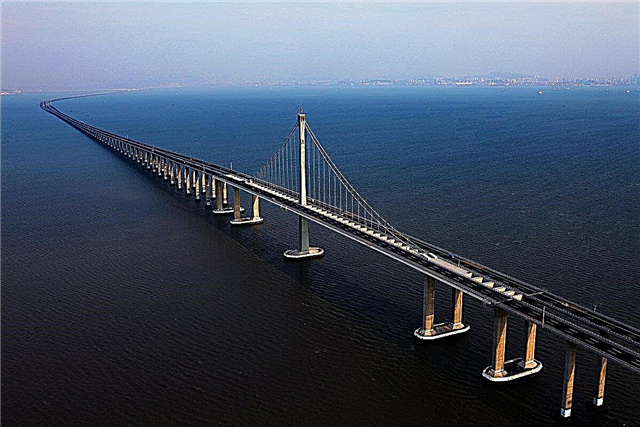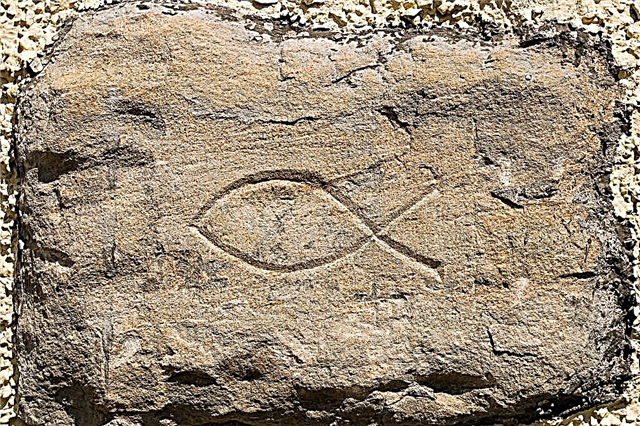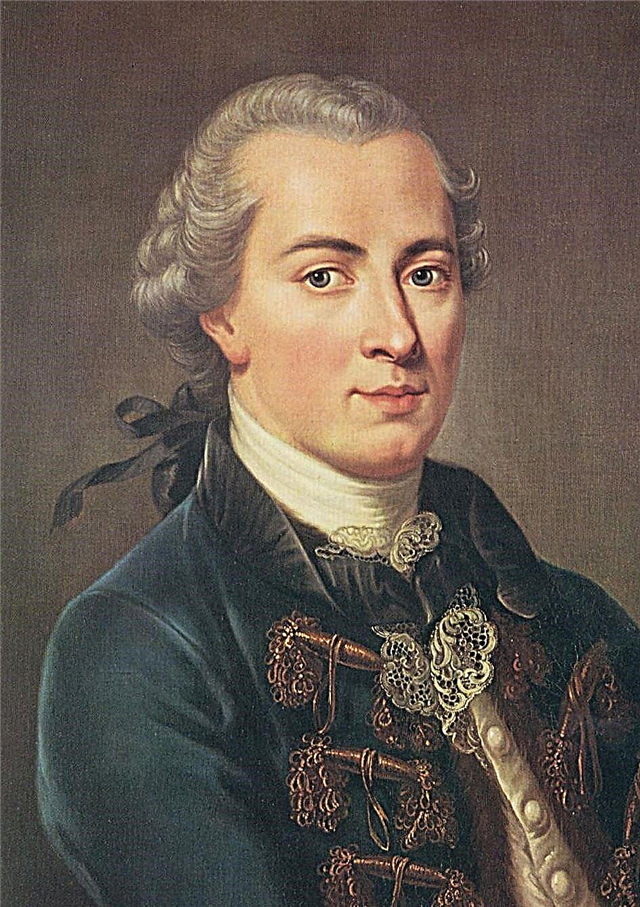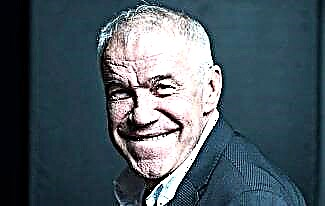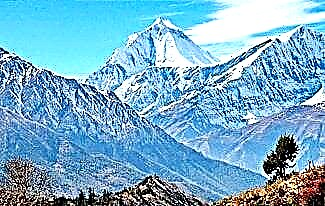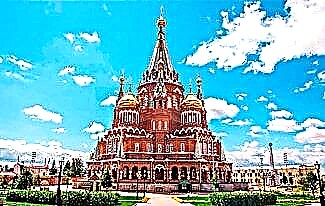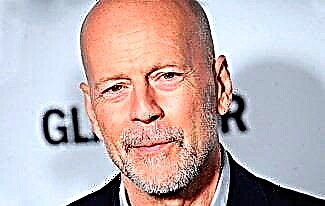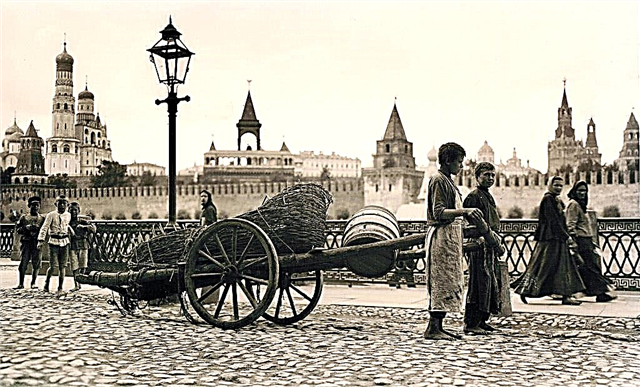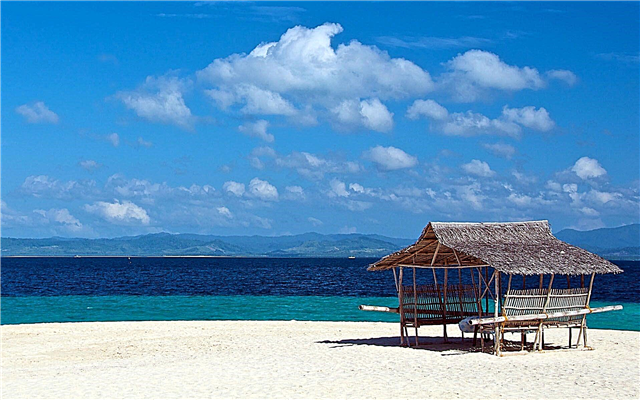Vladimir Vysotsky (1938 - 1980) is a unique phenomenon in Russian culture. His poems look rather dull without music. The rattle of a sometimes deliberately detuned guitar doesn't sound like an Aeolian harp. It is also difficult to surprise someone with a hoarse voice. As an actor, Vysotsky was strong within a rather narrow type. But the combination of all these qualities in one person has become a phenomenon. Vysotsky's life was short, but eventful. It contains hundreds of songs, dozens of roles in theater and cinema, women and the worship of thousands of audiences. Unfortunately, there was a place in her for a painful addiction, which ultimately killed the bard.

1. Vysotsky's father, Semyon Vladimirovich, returned from the war, but did not return to his family. However, Volodya was happier than millions of boys of his age - his father was still alive, he constantly visited his son and took care of him. And her mother, Nina Maksimovna, quickly found herself a new husband.
2. Vysotsky's stepfather very actively worshiped the green serpent - this is how the biographers of Vladimir Semyonovich describe the situation. In fact, most likely, he drank drunkenly. Otherwise, it is very difficult to explain why the court, initiated by Semyon Vysotsky, took the side of his father and gave him the upbringing of a boy who had just finished first grade. It has been and remains a common practice for the courts to hand over the child to the mother.
3. During two school years, Vysotsky lived with his father and his wife in Germany. Volodya learned to speak German fairly tolerably, play the piano and handle weapons - in Germany those years he could be found under every bush.

4. At the Moscow Art Theater School, Russian literature was taught by Andrey Sinyavsky, later convicted and exiled from the country.
5. With the current freedom of speech, it is difficult for a modern listener to understand why many in the Soviet Union were convinced that Vysotsky was in prison. Until the 1980s, the thieves' argo, the words from which the artist often used in his songs, was used only by a very narrow layer of people involved in crime. Ordinary citizens rarely came across this language, and censorship was on the alert. When Georgy Danelia tried to insert words from the real thieves' jargon into the film "Gentlemen of Fortune", the "competent authorities" urged him not to do this.
6. The first "thieves" songs Vysotsky wrote on behalf of a fictional character named Sergei Kuleshov.
7. The explosion of Vysotsky's popularity occurred after the release of the film "Vertical". "Rock Climber", "Top" and "Farewell to the Mountains" brought the bard all-Union popularity.


8. The first disc with Vysotsky's voice was published in 1965, it was an insert in the magazine "Krugozor" with a fragment of one of the performances. Although Vysotsky's songs were released quite actively in various collections, Vysotsky did not wait for the release of his solo album. An exception is a 1979 disc compiled for overseas sales.
9. Back in 1965, Vysotsky could well have thundered into prison. He gave 16 "left" concerts in Novokuznetsk. The newspaper "Soviet Culture" wrote about it. For illegal entrepreneurial activity, the singer could well have been given a term, but the matter was limited to the fact that Vysotsky returned the money to the state. After this scandal, Vysotsky, as an artist of the spoken genre, approved the rate of payment for a concert - 11.5 rubles (then increased to 19). And "Soviet culture" was one of two newspapers that reported in 1980 about the death of the artist.
10. In fact, of course, Vysotsky's fees were much higher. One of the employees of the Izhevsk Philharmonic, who received 8 years for fraud with payment (fraud - according to the then legislation, of course) said that Vysotsky's fee for one day was 1,500 rubles.
11. “She was in Paris” - the song is not about Marina Vladi, but about Larisa Luzhina, with whom Vysotsky began a romantic relationship on the set of the film “Vertical”. Luzhina really traveled to many countries, acting in joint film projects. He met Vladi Vysotsky in 1967, and wrote the song in 1966.

12. Already in 1968, when theatrical actors were transferred to self-financing, Vysotsky was earning more artists who were considered more talented. Character roles have always been valued more. Of course, this fact did not arouse much sympathy among colleagues.
13. In their first shared apartment, rented, on Matveyevskaya Street, Marina Vlady brought furniture directly from Paris. The furnishings fit in a suitcase - the furniture was inflatable.

14. At a press conference in the United States, in response to a rather provocative question, Vysotsky said that he had complaints against the government, but he was not going to discuss them with American journalists.
15. The statement about the desire of each actor to play Hamlet has long become a commonplace, and for Vysotsky the role of Hamlet was practically a matter of life and death. Both the theater bosses and colleagues in the theater were against his candidacy - the acting environment is rarely distinguished by benevolence in colleagues. Vysotsky realized that failure could cost him his career, but he did not back down. “Hamlet” was also Vysotsky's last performance.

16. In 1978, in Germany, a muffler fell off Vysotsky's car. He called his friend, who had emigrated to Germany, and asked to borrow 2,500 marks for repairs. The acquaintance had no money, but she called her friends and acquaintances and said that in the evening Vysotsky would sing at her place. During the two-hour performance, exclusive viewers collected 2,600 marks.
17. In the same 1978, on tour in the North Caucasus, the then first secretary of the Stavropol regional committee of the CPSU, Mikhail Gorbachev, offered Vysotsky to help buy a Swedish sheepskin coat.
18. According to the Weiner brothers, Vysotsky, having read the Era of Mercy from the book, almost in an ultimatum demanded that they write a screenplay. Realizing what the actor wanted, they began to make fun of him, discussing the candidacy of actors for the role of Zheglov. Vladimir, to his credit, was not offended by this.
19. In May 1978, at the very beginning of filming "Meeting Places ..." Vysotsky refused to participate in the film, in which he was supported by Marina Vlady. The director of the film, Stanislav Govorukhin, assumed that the actor realized the volume of the upcoming work (seven episodes were filmed) and did not want to take on a long and difficult job. Govorukhin still managed to convince Vysotsky to continue filming.

20. While working on "Meeting Place ..." Vysotsky did not stop playing in the theater. Repeatedly he had to put on Hamlet's makeup on the way to the Odessa airport, from where the actor flew to Moscow for performances.
21. The character of Stanislav Sadalsky, nicknamed Brick and the entire scene of Gruzdev's interrogation by Sharapov (“If not life, then at least save my honor”) were invented by Vysotsky - they were not in the script.
22. Once the chief director of the Taganka theater, Yuri Lyubimov, fell seriously ill and lay alone at home. Vysotsky came to visit him. Having learned that the director had a high fever, Vladimir immediately broke into the American embassy and brought an antibiotic that was not in the Soviet Union. Two days later, Lyubimov recovered.
23. A large number of Vysotsky's texts were published in the USSR under different names or without attribution. Official publications were few in number: the poet categorically refused to amend his poems.
24. The investigator, who made inquiries after Vysotsky's death, is still convinced that the poet's friends are to blame for his death. In his opinion, Vysotsky behaved inadequately, he was tied up and put on the loggia. Vysotsky's vessels were weak, and the binding caused extensive hemorrhages, leading to death. However, this is only the opinion of the investigator - a posthumous autopsy was not carried out, and the authorities convinced him not to initiate a case.

26. Obituaries and articles dedicated to the deceased Russian poet were published by leading newspapers in the USA, Canada, Great Britain, France, Poland, Bulgaria, Germany and many other countries.

